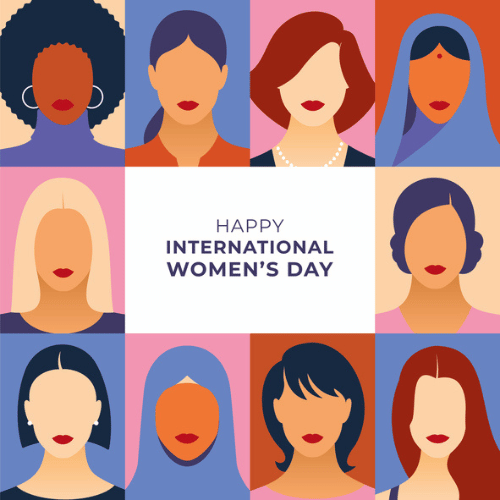March is a Time to Celebrate Women and Promote DEIB
 The month of March is a time to celebrate the achievements of women—both on March 8, which is International Women’s Day—and throughout the month for National Women’s History Month in the United States.
The month of March is a time to celebrate the achievements of women—both on March 8, which is International Women’s Day—and throughout the month for National Women’s History Month in the United States.
International Women’s Day celebrates the social, economic, cultural, and political achievements of women and serves as a call to action for achieving equality for women. This year’s theme is #EmbraceEquity. In the United States, the theme for National Women’s History Month is “Celebrating Women Who Tell Our Stories.” Both events aim to raise awareness about discrimination and provide an opportunity to reflect on your organization’s efforts to drive gender parity and Diversity, Equity, Inclusion, and Belonging (DEIB).
Gender Equity
Gender equity is about fairness in pay and opportunities, and challenging and removing outdated or sexist views. Work needs to be done on instilling women with the belief that they can pursue any career, subject, or passion they choose. Children need to know there is no such thing as a man’s job or a woman’s job … just the right person for the job.
Research done by the World Bank found recent legislative progress across several regions of the world to advance gender equality. Its Women, Business and the Law report found old gender equality laws dismantled and/or new ones implemented during 2022 in: Armenia, Cambodia, Colombia, Democratic Republic of the Congo, Gabon, Georgia, Greece, Sao Tome and Principe, South Africa, Spain, Switzerland, Togo, and Ukraine. And, in November 2022, the European Commission approved a regulation requiring 40 percent female representation on European company boards by 2026.
Despite these legislative strides, women still lag behind men, particularly in reaching leadership roles. As of February 2023, women hold only 8.2 percent of CEO positions and about 26.5 percent of senior-level and management positions in S&P 500 companies. Women of color hold 4 percent of C-suite and Senior Vice President roles, according to McKinsey’s Women in the Workplace 2022.
Pay Disparity
Although significant gaps exist in what women are paid versus their male counterparts, progress is being made to require companies to disclose pay rates. In 2020, across the European Union, women earned on average 13 percent less than their male counterparts. In the United States, an American Association of University Women (AAUW) report, The Simple Truth About the Gender Pay Gap, found women working full time are paid 84 percent of what men earn. The World Economic Forum’s Global Gender Gap Report 2022 estimates it will take 132 years to reach full parity and finally close the gender gap.
Some individual EU member states have made strides toward requiring companies to disclose gender pay gaps. Iceland, for example, closed 90 percent of its gender pay gap in 2021. And in the United States, several states (California, Colorado, Connecticut, Maryland, Nevada, Rhode Island, and Washington) have rolled out salary transparency laws, with New York City becoming the latest jurisdiction to take action.
The Impact of the Pandemic
While the coronavirus pandemic undeniably expanded workplace flexibility, it has been a major disruptor for women in the workplace. In the early days of the pandemic, 80 percent of U.S. workers that left their jobs, either by choice or due to job disruption, were women. Millions of people left the workforce because they needed to manage childcare, schooling, and the challenges posed by repeated quarantines. A UN Women and the UN Department of Economic and Social Affairs (UN DESA) report estimates that globally, women lost $800 billion in 2020.
Benefits of Embracing DEIB
Studies show diversity drives better performance, higher levels of creativity and innovation, and more satisfied employees and customers. Companies with high gender diversity are more profitable and their teams make better business decisions. And although 85 percent of organizations named DE&I as a value or priority, 31percent of respondents in PwC’s Diversity, Equity & Inclusion Benchmarking Survey said diversity is a barrier to employee advancement.
So how can organizations secure the best leaders and move toward closing the gender gap? To make progress toward gender equality, companies must focus on preparing people for leadership positions and creating a speak-up culture that challenges gender stereotypes, calls out discrimination, draws attention to bias, and seeks out inclusion. Ethics and compliance leaders have an opportunity to work with DEIB colleagues to find synergies and opportunities to work together to:
- Hold leadership accountable for promoting DEIB and link it to the company’s E&C strategy and Code of Conduct
- Tackle unconscious bias with training that prepares employees to respond to ethical dilemmas
- Create a speak-up culture in which all employees feel comfortable sharing concerns and reporting observed unethical conduct
We encourage you to look for ways to celebrate the women in your organization on International Women’s Day, March 8, and throughout the entire month in recognition of National Women’s History Month.



